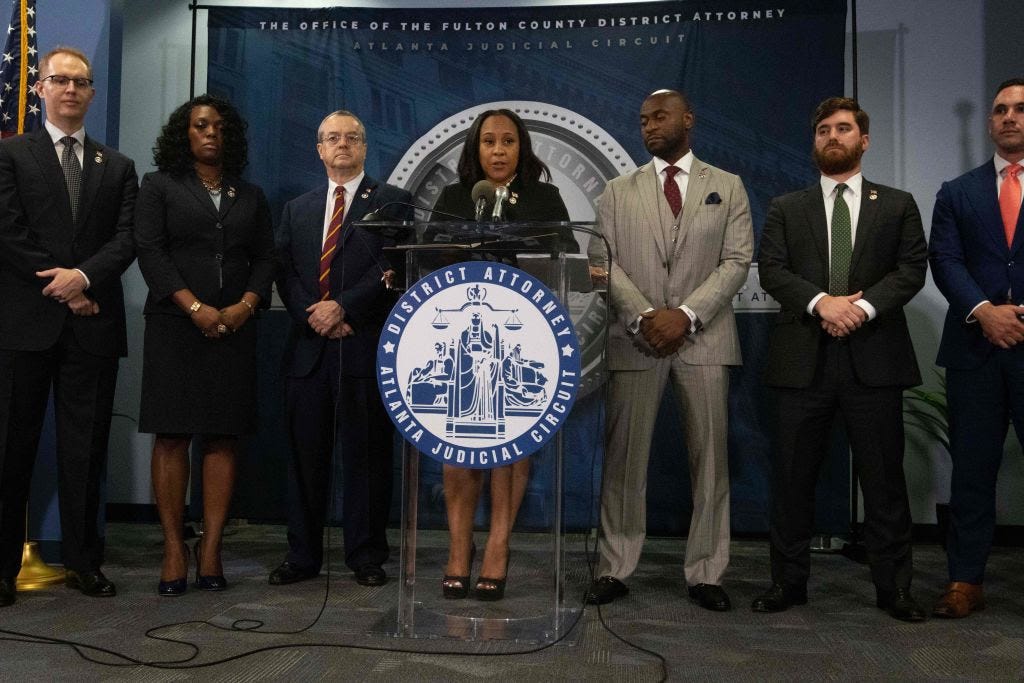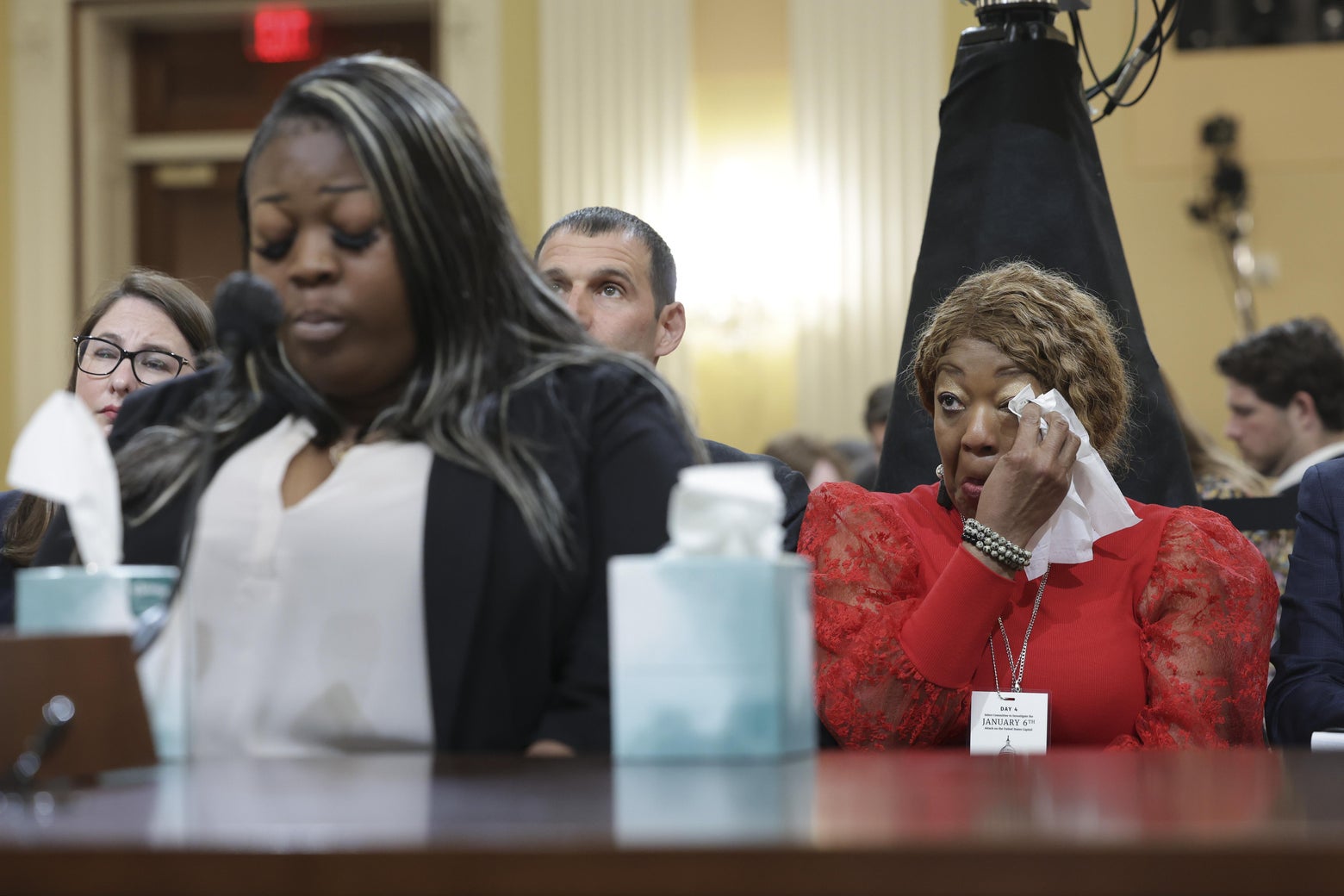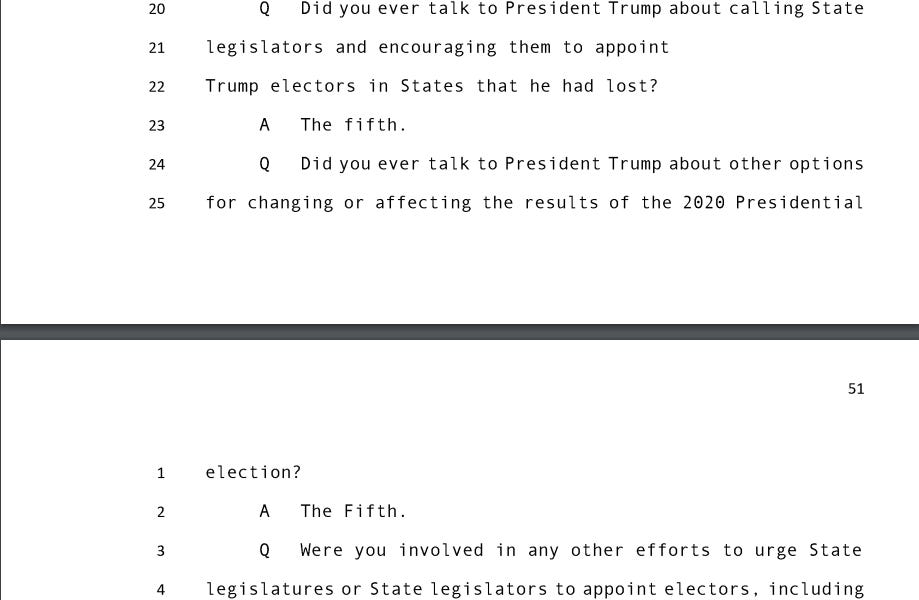Sixties Fan
Diamond Member
- Mar 6, 2017
- 57,282
- 10,913
- 2,140
- Thread starter
- #481
Part 1
By now you know that Trump has been indicted, for the fourth time, in Fulton County Georgia. His co-defendants include people like Rudy Giuliani and other lawyers like John Eastman, Sidney Powell (the “kraken”), attorney-general-wannabe Jeff Clark, and more, as well as lesser known figures in Georgia and others involved in the campaign. You can find the full indictment here. It’s a long and somewhat difficult slog, but rewarding.
Possibly the most important point for the future of democracy: In Georgia state proceedings, there are cameras. Not just for trial but every step of the way. That was literally true as we were all able to watch the indictment get hand-walked to the judge. This is what it means to have open courtrooms.
The impact when people can see it for themselves can’t be overstated. That’s especially true when it comes to hearing the evidence and the legal arguments the lawyers make. There is no excuse for not having cameras in federal courts. But I’m glad we have them in Georgia. It’s far more difficult for right wing media to call the prosecution a witch hunt when people can see it for themselves. Just like public opinion shifted in some unlikely corners when the public was able to view the trial and hear the evidence against the police officers who murdered George Floyd for themselves, I expect the same could happen hear.

There are a lot of crimes charged in the indictment, but they all center on five basic areas of misconduct:

 joycevance.substack.com
joycevance.substack.com
By now you know that Trump has been indicted, for the fourth time, in Fulton County Georgia. His co-defendants include people like Rudy Giuliani and other lawyers like John Eastman, Sidney Powell (the “kraken”), attorney-general-wannabe Jeff Clark, and more, as well as lesser known figures in Georgia and others involved in the campaign. You can find the full indictment here. It’s a long and somewhat difficult slog, but rewarding.
Possibly the most important point for the future of democracy: In Georgia state proceedings, there are cameras. Not just for trial but every step of the way. That was literally true as we were all able to watch the indictment get hand-walked to the judge. This is what it means to have open courtrooms.
The impact when people can see it for themselves can’t be overstated. That’s especially true when it comes to hearing the evidence and the legal arguments the lawyers make. There is no excuse for not having cameras in federal courts. But I’m glad we have them in Georgia. It’s far more difficult for right wing media to call the prosecution a witch hunt when people can see it for themselves. Just like public opinion shifted in some unlikely corners when the public was able to view the trial and hear the evidence against the police officers who murdered George Floyd for themselves, I expect the same could happen hear.

There are a lot of crimes charged in the indictment, but they all center on five basic areas of misconduct:
- False statements around voting fraud made by Trump cronies, including Giuliani, to Georgia officials,
- The Sidney Powell led breach of voting machines in Coffee County,
- Trump’s calls to state officials, including Secretary of State Brad Raffensperger, begging them to overturn the election,
- the attacks on election workers like Ruby Freeman and Shaye Moss, and
- the creation of slates of alternate electors in an attempt to steal the election.
- 3 counts of soliciting a state official to violate their oath of office
- 2 counts of conspiracy to commit forgery
- 2 counts of conspiracy to make false statements
- 2 counts of making false statements
- 1 count of conspiracy to impersonate a public officer
- 1 count of conspiracy to file false documents
- 1 count of filing false documents

The Devil Went Down to Georgia
By now you know that Trump has been indicted, for the fourth time, in Fulton County Georgia. His co-defendants include people like Rudy Giuliani and other lawyers like John Eastman, Sidney Powell (the “kraken”), attorney-general-wannabe Jeff Clark, and more, as well as lesser known figures in...










